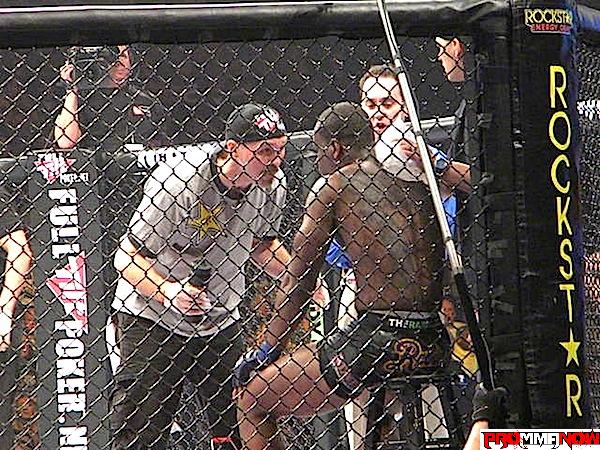
How to Get Better at a Skill… Do Worse
“It’s not necessarily the amount of time you spend at practice that counts; it’s what you put into the practice.” –Eric Lindros
I recently read a really spectacular book that talks about how skill is acquired and the basis of the book stemmed from a study by Australian music psychologists Gary McPherson and James Renwick.
One of their prized findings can be found of a girl called Clarissa (not her real name) playing the clarinet on a video they titled “The Girl Who Did a Month’s Worth of Practice in Six Minutes” – which sounds pretty shocking until you realize that they’re right… and then it’s even *MORE* shocking.
At a fundamental level we wonder why some people do better at certain skills and others do not. How is it that a lone Russian tennis court produces more top-twenty women players than the entire US?
How is it that the tiny island of the Dominican Republic now accounts for one in nine of major league baseball players? How is it that these places can continually pump out world class athletes? Are people in these places magically better? What is it that they do?
Well, answering that whole question would take a whole book (or a LOT of books actually), all I’m going to focus on is the mistake principle.
The Mistake Principle
Most of us hate making mistakes. We spend the better part of our waking hours trying to avoid them. When we do make them we try to get out of the mistake as quickly as possible.
The problem with this is mistakes are how we learn. Watching a baby learn to walk we don’t give the baby 10 tries and then we make them stop. We don’t let the baby try 100 times or a 1,000 times. We just keep letting the baby make mistakes until they can walk.
If the same problem was set in front of an adult it would look something like this:
“Ok, I want you to learn something incredibly difficult. You won’t get it right for a couple years and every time you try and fail, people will laugh at you. Now, go ahead and start learning…”
That’s the problem babies face, and yet, they don’t care. They keep plugging along trying to walk until they get it. For an adult, most of us would be mortified at the thought of learning the above “skill”. So why is it that when we train do we constantly avoid mistakes?
Of course, babies don’t make conscious mistakes. They just make them in the course of learning. Same with us. I don’t care how good you are, how awesome your skillset is, there is always more to learn and fix. Not just neat techniques, but in simple basic things. And we can look at some simple things in two examples:
Example #1: You have a habit of dropping your hands after your punches
Pretty common problem actually. Most people will try to fix this problem by throwing a million punches and then trying to keep your hands up. So let’s say we pick jab-cross as our combo, and we focus on keeping our hands up at the end. We’ve really cut into our training time by 66% with this method! Thirty-three percent of the time I’m throwing a jab, 33% of the time I’m throwing a cross and only 33% of the time am I actually learning the skill of keeping my hands up. What a waste!
Example #2: Having a hard time finishing a single leg
So you can get the single leg, you can control the leg but no matter what you do, you can’t seem to finish by “running the pipe”. So what does your coach have you do? Single leg your partner 10,000 times. Problem is, you’re cutting into your training again.Thirty-three percent of the time you’re securing the single leg, 33% of the time you’re keeping your posture and 33% of the time you’re trying to “run the pipe.” Again, only a small percentage of the time are we focusing on the actual problem.
Go Slow, Make a Mistake and then CORRECT THE MISTAKE
Go slow is obvious, if you’re trying to fix a mistake by going fast just stop right now. It won’t work. Go slow, learn the skill and then implement the skill once it’s “fixed”.
When you happen upon a mistake, don’t gloss over it or repeat the whole activity again. Stop right there repeat the mistake and then repeat the correction to the mistake 5-10 times. Then resume the activity. When you find the mistake again, go over the correction slowly 5-10 times and then carry on with the activity. Repeat until there isn’t a mistake there anymore.
Doing this will greatly increase your ability to learn. Just like with Clarissa, you don’t need a month to learn something you need about 6 minutes of actual study time. Stop wasting training time and spend more of it learning actual skill!
Be good to one another folks, learn to accept that everyone makes mistakes and to help those that are making them – even if that includes yourself. God bless you boys and girls.
-Coach Eric
Coach Eric Turner is the Head Instructor at Knoxville Martial Arts Academy in Knoxville, Tenn. He is the author of ProMMAnow.com’s “MMA Coach’s Corner,” a bi-weekly blog in which he shares insight and knowledge gleaned from his years training and working with fighters at all levels. You can learn more about Coach Turner and Knoxville Martial Arts Academy at www.knoxvillemartialartsacademy.com.

[…] full post on MMA -mobile – Google News Posted in MMAFights.biz | Tags: better, coach's, corner, Skill, […]
[…] Pro MMA Now […]